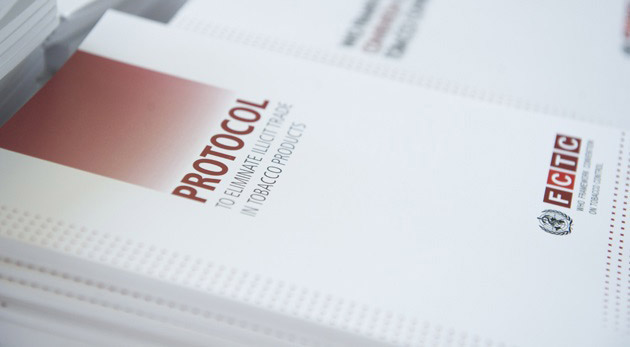
Context
Saudi Arabia ratified the WHO Framework Convention on Tobacco Control (FCTC) on 9 May 2005. The country took early action in combating illegal trade by establishing a committee to examine illicit trade in tobacco products, as directed by a decision from the Cabinet in 2009. In 2012, the Conference of the Parties to the WHO FCTC adopted the Protocol to Eliminate Illicit Trade in Tobacco Products, which was ratified by Saudi Arabia in 2015.
Initiative
To support the objectives of the WHO FCTC and take action in combating illegal trade, the Saudi Arabian Cabinet issued a resolution in 2014. This resolution authorized the Minister of Health or their representative to sign the Protocol to Eliminate Illicit Trade in Tobacco Products. Subsequently, in 2015, the Shura Council approved Saudi Arabia's participation in the Protocol, recognizing its potential impact on reducing national tobacco use and promoting regional collaboration in curbing the sale and circulation of illicit tobacco products. As a result, Saudi Arabia ratified the Protocol in 2015.
The National Tobacco Control Committee, representing the Ministry of Health, published an informational booklet about the Protocol to Eliminate Illicit Trade in Tobacco Products. In the same year, the activities for World No Tobacco Day were dedicated to raising awareness among the public about the Protocol.
Additionally, Saudi Arabia introduced a tax stamp project for tracking tobacco products, led by the General Authority for Zakat and Income Tax. This system utilizes tax stamps affixed to imported tobacco products, with the distribution or importation of any tobacco products lacking tax stamps being prohibited.
A tax stamp is a distinctive symbol, such as a sticker or encoded digital data, applied to specific products. The stamp is requested, printed and monitored through a tracking programme. Producers and importers must comply with the tax stamp system's specified standards to import and offer these products in the market.
In November 2019, the General Authority for Zakat and Income Tax announced a ban on the sale and distribution of cigarette packages without tax stamps. This decision was based on the executive regulations of the selective tax system, specifically regarding tax stamps, within the framework of the unified agreement for selective tax in countries of the Gulf Cooperation Council.
To assist consumers, the General Authority for Zakat and Income Tax developed a mobile application called "verify” (تحقق). This application allows users to verify the presence of tax stamps by scanning the barcode on cigarette packages. The authority encourages consumers to report illicit products through their official website, the hotline (19993) or the "verify" (تحقق) application.
Impact
The implementation of the tax stamp system in Saudi Arabia has had several notable impacts, including:
Strengthening regulatory controls. The tax stamp system has enabled Saudi Arabia to establish effective regulatory controls for collecting selective goods tax on imports. This ensures that all necessary taxes and fees are duly collected in a systematic and legitimate manner.
Ensuring legitimate product entry. The tax stamp system provides a systematic and legitimate means of verifying the entry of products into Saudi Arabia. This helps prevent illicit trade and ensures that all applicable taxes and fees are properly collected.
Enhancing analysis and auditing capabilities. The tax stamp system has improved the ability of relevant authorities to analyze and audit imported products. This enables them to identify instances of illicit trade in these products and develop strategies to minimize and mitigate such practices as much as possible.
Next steps
Moving forward, as of 24 February 2020, the importation of waterpipe products without tax stamps will be prohibited. Additionally, starting from 18 May 2020, the sale and trade of any waterpipe product lacking tax stamps will be forbidden within Saudi Arabia. Saudi Arabia remains committed to promoting and encouraging other countries in the Region to ratify the Protocol to Eliminate Illicit Trade in Tobacco Products, fostering ongoing cooperation in this regard.
References
MPOWER measures to reduce demand for tobacco
Protocol to Eliminate Illicit Trade in Tobacco Products
WHO Framework Convention on Tobacco Control
Story originated in 2019.




